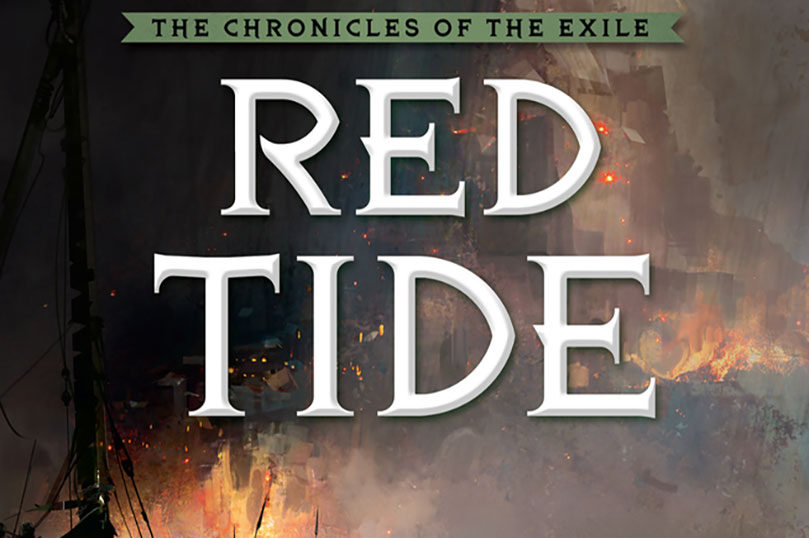Pull up a chair, I could use some advice. The thing is, I’m in middle of writing the next book in my Chronicles of the Exile series, and I’m having trouble with a character. She–or he–is one of my favorites in the series. But in typical fashion, she has contrived to put her neck on the headsman’s block, and the axe is hovering. Her death makes most sense in light of the events to this point. So why am I hesitating?
Perhaps it is natural to do so. I’ve spent years dreaming up and developing my main characters. If I could slaughter one of them and feel nothing, what would that say about how they were written? After all, if I didn’t like them, I would have changed them. And if I don’t care for my characters, how can I expect other people to?
As a narrative tool, I can see the value of killing characters. I remember reading about the death of a certain main character in George RR Martin’s A Game of Thrones. I couldn’t believe it when he was killed. I had to re-read the relevant passage several times, because I was sure I must have misinterpreted something. Like most of Martin’s readers, I suspect I fell into the trap of thinking the character in question was untouchable. So when Martin put him in danger, I wasn’t too concerned. And then he died. After I’d picked my jaw off the floor, it dawned on me that no one in the series was safe. So when Martin next put another of his characters in peril, you can bet I took him seriously.
Then along came the Red Wedding, and I had to reappraise my expectations all over again.
Are there right and wrong ways to kill a character? I’m a big fan of Steven Erikson’s Malazan series. The title of the seventh book, Reaper’s Gale, is a fair warning that not everyone will be walking into the sunset at the end. But the death of one particular character (I won’t say who) hit me hard. It wasn’t that he was my favourite in the book. Rather, it was the manner of his passing. By the time he died, the events of the story were all but concluded. The character had overcome huge odds. He was even in a budding romance, and had promised to return to his beloved. (In retrospect, I should have known from that point that he was destined to die.) Then out of the blue he was stabbed in the back. It felt so…meaningless.
Reading that sentence back, it seems an absurd thing to say. What is it that gives any death “meaning”? And why should every character go out with a drumroll and a blaze of sorcery? That would be unrealistic. In a recent interview, George RR Martin claimed that it is dishonest not to show how war kills heroes as easily as it kills minor characters. “You don’t get to live forever,” he said, “just because you are a cute kid, or the hero’s best friend, or the hero.”
I agree with that. But I still feel a writer needs to be careful with the lives of his or her characters. I have read books over the years where it felt like the death of a character was engineered for no other purpose than to shock. I have also read books that were spoiled – or at least soured – by the death of an important character. Yes, there were other characters to continue the fight, but the story just wasn’t the same afterwards. I can’t help thinking that some characters are too important to lose. Would A Game of Thrones be the same without Tyrion? Surely Martin would never kill him, would he?
Actually, I take that back. Wouldn’t want to tempt fate, after all.
So where does that leave my own character with her head currently on the block? In an uncomfortable spot, I’m afraid to say. Given the circumstances of the book, her death is the most credible outcome. Anything less would seem, to use Martin’s word, dishonest. If you’ve read my novels, you’ll know I’m not afraid to wield the axe when it is necessary. In this instance, killing the character feels right, and maybe gut feel is all an author has to go on in the end.
I’ve experienced that sensation before when I’ve bid goodbye to characters. On the one hand, I was sad to see them go. On the other hand, their death scenes ended up being among my favorites in the relevant book. If handled sensitively, the passing of a character has the potential to invoke a strong emotional response in the reader, and is that not the primary goal in dramatic fiction?
Buy Red Tide here:













